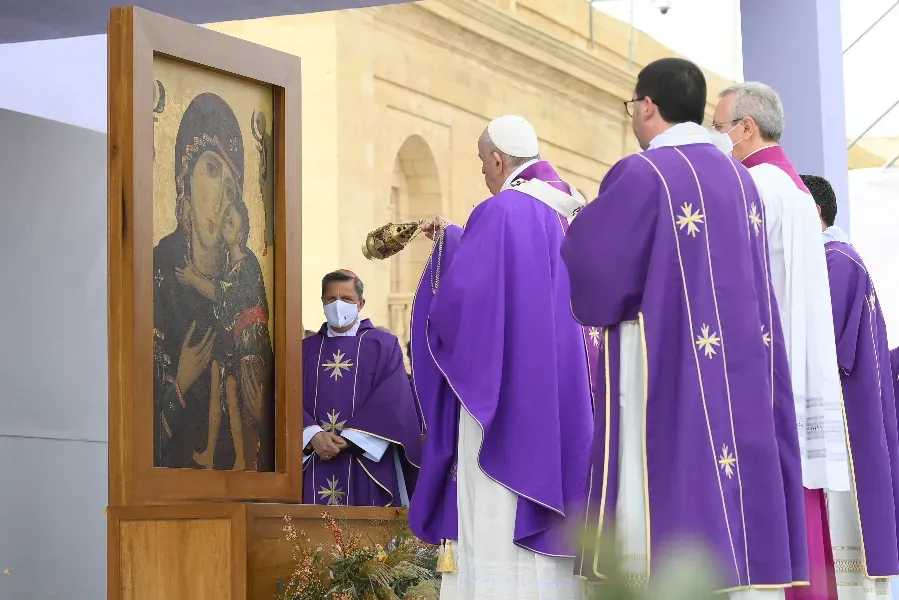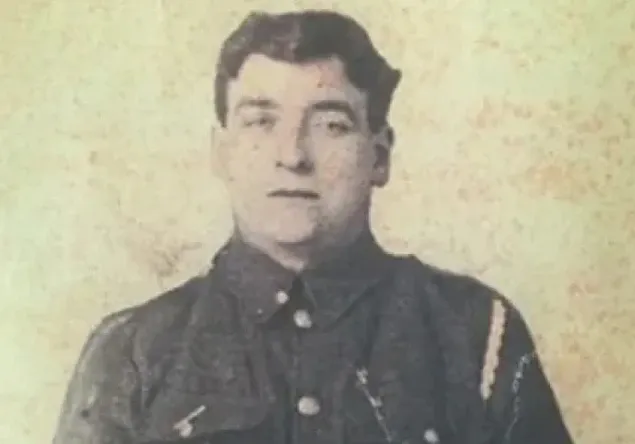“This is the Lord Jesus. We truly know him when we experience his forgiveness, and when … we discover that God comes to us through our inner woundedness. That is indeed where the Lord loves to make himself known,” he said.
People gathered in the Granaries in Floriana, a fortified town on the outskirts of Valletta, cheering and waving Vatican flags as Pope Francis entered the square in the popemobile.
The live-streamed Mass was the largest public gathering during the pope’s two-day trip to the Republic of Malta on April 2-3.
About 20,000 people were present in the square and surrounding area for the Mass, according to the Holy See press office.
Before arriving at the square, Pope Francis stopped to change cars and get into the open popemobile in front of the church housing the tomb of St. George Preca. Preca, who was canonized by Benedict XVI in 2007, founded the Society of Christian Doctrine, which trains catechists.
In his homily, Pope Francis reflected on Jesus’ encounter with a woman caught in adultery recorded in the Gospel of John.
He explained that once “we open our hearts” to God in “in truth, he can work wonders in us.”
Pope Francis said: “We see this in the woman caught in adultery. Her situation seemed hopeless, but then a new and unexpected horizon opened up before her. She was insulted and awaiting merciless judgment and severe punishment. Yet to her amazement, she finds herself acquitted by God, who points her to a future she did not at all anticipate: ‘Has no one condemned you?’ — Jesus says to her — ‘Neither do I condemn you; go, and do not sin again.’”
“Forgiveness changed that woman’s life,” he added.
More than 85% of Malta’s population of 478,000 people are baptized Catholics, but the country has seen a steady decline in Mass attendance for decades.








